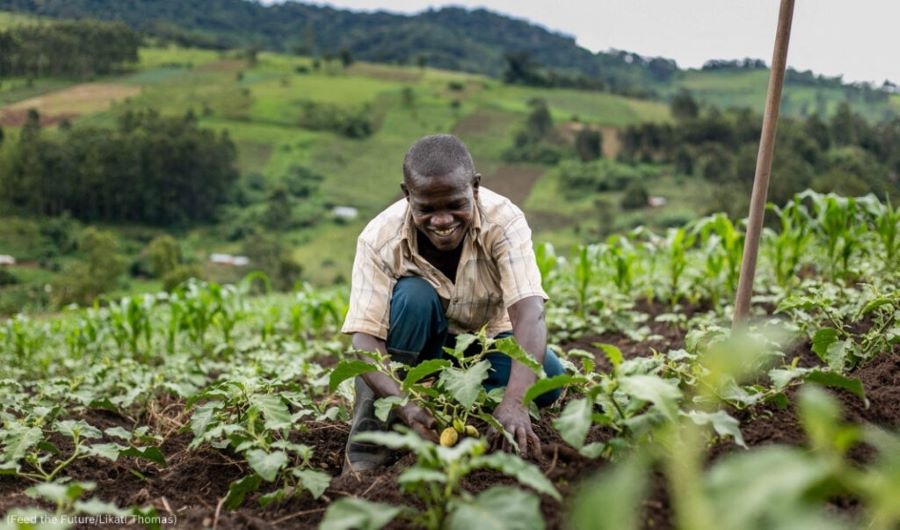King Mohammed VI's African Policy has always placed food security at its core as a strategic priority, affirmed the Minister of Foreign Affairs, African Cooperation, and Moroccan Expatriates, Nasser Bourita, in Nairobi on Thursday.
This vision for Africa, which is not born out of nothing, resonates with a national vision, through which the Kingdom has chosen to implement ambitious strategies to enhance agricultural productivity, emphasized Bourita, who represents the Sovereign at the African Summit on fertilizers and soil health.
The Royal Vision in this domain unfolds through three instruments, namely: the OCP Group, the operational arm of this vision and a continental leader in the fertilizer market; the Ministry of Agriculture, custodian of public policies and sectoral strategies in agriculture; and the Ministry of Foreign Affairs, guardian of the orderly execution of the Royal Vision of South-South cooperation, noted the minister.
He also pointed out that the Sovereign, who attaches the utmost importance to the strategic themes of this summit for both Morocco and Africa, ensured that the Kingdom actively participates through these three instruments.
The minister also highlighted that in accordance with His Majesty King Mohammed VI's High Directives, Morocco has developed sectoral development strategies, such as the Green Morocco Plan launched in 2008, and more recently, the "Generation Green Plan," noting that these strategies are based on two fundamental pillars: the modernization of agriculture and agro-industries, and the solidarity-based development of family farming.
Beyond food availability, the Moroccan approach promotes an integrated approach; that of socio-economic development of rural areas and investment in agriculture as a sector offering tremendous opportunities for wealth creation and youth employment, he continued, noting that agricultural development and food security are not only a strategic priority for Morocco but also represent the main objectives of South-South cooperation.
In the spirit of African solidarity, Morocco has undertaken to share its experience and best practices with its brotherly African countries, said Bourita, explaining that the Moroccan approach favors the establishment of sustainable partnerships.
In this regard, he recalled the launch at COP22 of the Triple A Initiative for the Adaptation of African Agriculture to Climate Change, as well as the Triple S Initiative launched in 2016 with the Republic of Senegal, aimed at supporting Sustainability, Stability, and Security in Africa.
The Kingdom also does this on a bilateral level with several brotherly African countries (Ethiopia, Nigeria...), continued the minister, specifying that this is also the framework for the action of the OCP in Africa.
Thus, in response to the surge in fertilizer prices and the challenges of food security, the OCP has strengthened its presence and action in Africa through the opening of 12 representations across the continent and the enhancement of fertilizer production and distribution through the launch of 8 industrial projects in Africa, including 3 new storage and blending platforms, he noted.
This also includes the launch of 46 development projects across Africa, focusing on improving soil fertility and agronomic training, to promote sustainable agricultural practices, and the development of initiatives such as the "Agribooster" program, which provides comprehensive support to farmers, including access to fertilizers and seeds; or the "Farm&Fortune Hubs" program, which transforms small farms into productive agricultural businesses, the minister recalled.
To meet Africa's needs, the OCP Group has dedicated 20% of its fertilizer production to the continent, offering 180,000 tons of soil nutrients as aid and 370,000 tons at reduced prices, Mr. Bourita affirmed, specifying that these volumes represent respectively 16% of current African demand and 25% of the group's sales on the continent. The group plans to increase its production by 2 million tons this year, thus highlighting its commitment to African agriculture.
Through this presence, the OCP positions itself today in Africa as the main fertilizer supplier and also the main provider of agricultural know-how, particularly through mobile laboratories deployed in several countries on the continent.
The minister also affirmed that to be resolved and proactive, Morocco's commitment to African agriculture makes sense in the combination of efforts from all, advocating, in this spirit, for the creation of an African Consortium for Innovation in Agriculture.
Such a platform would coordinate the improvement of fertilizer use and soil health across the continent, facilitating the sharing of technologies and joint development of incentive policies, Bourita supported.
The minister also advocated for the establishment of a Pan-African Training and Certification Program in Soil Management, stating that such a program would contribute to raising soil management standards and promoting sustainable practices, through regional training centers and pan-African certification.
This also includes the establishment of a Green Agricultural Infrastructure Financing Initiative, Bourita said, explaining that this initiative would support the development of sustainable agricultural infrastructure, including the creation of a fund for eco-responsible irrigation projects, as well as incentives for private investments in environmentally friendly technologies.
The minister also advocated for the creation of an African Observatory for Soil Data and Analysis, stating that this structure would be mandated to compile and provide precise and updated data to African countries to improve decision-making in agriculture, leveraging the use of advanced technologies such as satellites.
"In this spirit, Afro-optimism keeps Morocco firm in its belief that by investing in African agriculture, we cultivate the foundations of a safe and serene Africa of tomorrow," he said.
"Together, we can meet the challenge of food security in Africa, which has all the assets to make agriculture a driver of development and transformation," he assured, emphasizing that Morocco remains, as it has always been, ready to share its experience and expertise with its African brothers, so that agriculture on the continent is synonymous with stability and shared prosperity.
Organized by the African Union and the Kenyan government, the African Summit on fertilizers and soil health aims to highlight the crucial role of fertilizers and soil health in stimulating sustainable agricultural growth beneficial to poor populations.






